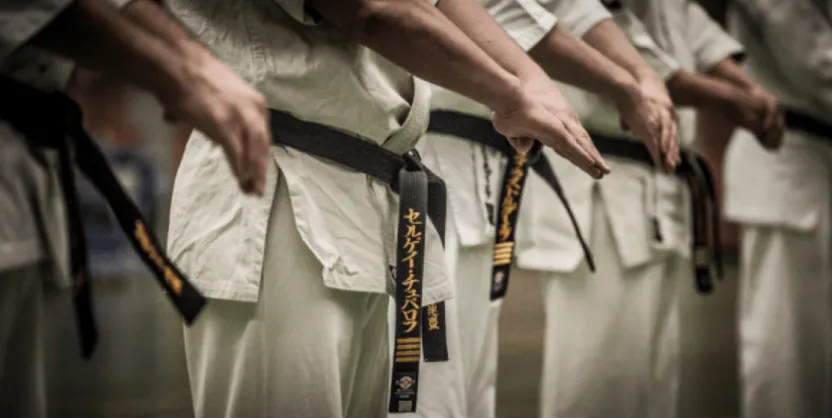| Grade |
Belt |
| Beginner | White Belt |
| 9th KYU | Orange Belt |
| 8th KYU | Red Belt |
| 7th KYU | Yellow Belt |
| 6th KYU | Green Belt |
| 5th KYU | Purple Belt |
| 4th KYU | Purple Belt with one white stripe |
| 3rd KYU | Brown Belt |
| 2nd KYU HO | Brown Belt with one white stripe |
| 2nd KYU | Brown Belt with two white stripes |
| 1st KYU HO | White with a black stripe |
| 1st KYU | Black with a white stripe |
| Shodan | Black Belt (Sometimes denoted by one bar at the end of their belt) |
| Nidan | Black Belt (Sometimes denoted by two bars at the end of their belt) |
| Sandan | Black Belt (Sometimes denoted by three bars at the end of their belt) |
| Yondan | Black Belt (Sometimes denoted by four bars at the end of their belt) |
| Godan | Black Belt (Sometimes denoted by five bars at the end of their belt) |
| Rokudan | Black Belt (Sometimes denoted by six bars at the end of their belt) |
| Shichidan | Black Belt (Sometimes denoted by seven bars at the end of their belt) |
| Hachidan | Black Belt (Sometimes denoted by eight bars at the end of their belt) |
| Kudan | Black Belt (Sometimes denoted by nine bars at the end of their belt) |
| Judan | Black Belt (Sometimes denoted by ten bars at the end of their belt) |
Please Note: It is extremely rare to see anyone achieve a grade above 8th Dan in their lifetime, for example Sensei Enoeda who was one of the original Japanese instructors that brought karate to the UK received his 9th dan posthumously.
We generally do not use Dan bars to denote rank amongst black belts and everyone from Shodan and above simply wears a black belt that may have their name and style on in either English or Japanese Kanji or katakana.

